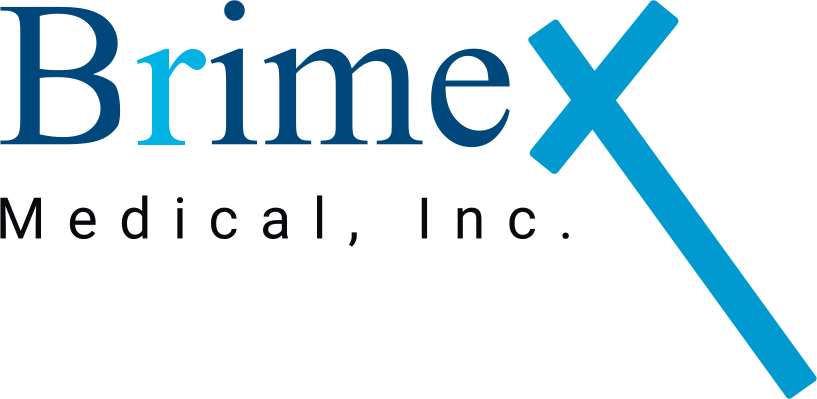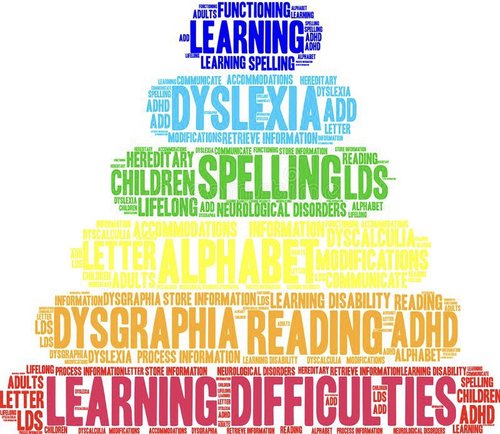Learning disabilities are neurological conditions that affect how a person processes information. These disorders can impact skills such as reading, writing, listening, speaking, reasoning, and mathematics. Despite these challenges, people with learning disabilities typically possess average or above-average intelligence and often excel in various fields, including science, arts, and other creative areas. Some of the most influential figures in history, such as Albert Einstein, Leonardo da Vinci, and Winston Churchill, had learning disabilities, proving that these challenges do not limit one’s potential.
At Brimex Medical, Inc., we offer comprehensive intellectual and developmental disability support services that empower individuals to find their rightful place in the community. We believe in focusing on strengths, offering support, and fostering a sense of belonging for all.
Types of Learning Disabilities
The term “learning disability” encompasses various specific disorders, each presenting unique challenges. Below, we explore the most common types:
1. Dyslexia
Dyslexia is the most well-known learning disability, affecting language processing. It accounts for about 80% of all learning disability cases. People with dyslexia may have difficulty reading, spelling, writing, and sometimes even speaking. Symptoms can range from trouble recognizing letters and sounds to issues with reading fluency, comprehension, and vocabulary development.
Example: A child with dyslexia might struggle to read words that others find easy, such as “cat” or “dog.” However, with the right support, such as tailored reading programs, they can learn to decode and understand texts effectively.
Practical Tip: Early diagnosis and intervention are crucial. Tools like phonics-based reading programs, audiobooks, and speech-to-text technology can help. At Brimex Medical, Inc., our support services can provide tailored learning strategies to improve language processing skills.
2. Dysgraphia
Dysgraphia affects writing abilities. People with this condition may have difficulty organizing their thoughts, spelling, handwriting, and grammar. They may also struggle with letter spacing, spatial awareness, and motor planning, making it difficult to write legibly or coherently.
Example: A person with dysgraphia might find it hard to keep their writing within lines or may misspell common words despite knowing how to spell them verbally.
Practical Tip: Encourage the use of typing instead of writing by hand. Graphic organizers and handwriting tools can also make the writing process smoother.
3. Dyscalculia
Also known as “math dyslexia,” dyscalculia affects a person’s ability to understand and work with numbers. This may include challenges with counting, recognizing numbers, telling time, performing calculations, and understanding math concepts.
Example: A person with dyscalculia might find it hard to differentiate between the number 6 and 9 or struggle to understand basic math operations like addition and subtraction.
Practical Tip: Use visual aids such as diagrams, charts, and hands-on materials like counting blocks to simplify mathematical concepts. Regular practice with practical math, such as counting money, can also help improve these skills.
4. Auditory Processing Disorder (APD)
People with APD have difficulty processing sounds, even though their hearing may be normal. This can make it hard to distinguish similar sounds or pick out a specific voice from background noise.
Example: A child with APD might have trouble following conversations, especially in noisy environments, and may frequently ask for things to be repeated.
Practical Tip: Reduce background noise during conversations. Practice active listening exercises and consider speech therapy, which can improve auditory skills.
5. Language Processing Disorder (LPD)
A subset of APD, LPD specifically affects the processing of spoken language. Individuals may have difficulties understanding or producing speech, leading to problems with following instructions or participating in conversations.
Example: Someone with LPD might struggle to understand complex sentences or express their thoughts clearly. They may find it easier to communicate through gestures or written words.
Practical Tip: Use clear, simple language and allow more time for responses. Speech therapy can aid in improving language processing capabilities. Brimex Medical, Inc. offers speech and language support services to enhance communication skills.
6. Nonverbal Learning Disabilities (NVLD)
NVLD affects a person’s ability to understand nonverbal cues such as facial expressions, body language, and tone of voice. It can lead to challenges in social interactions and spatial awareness.
Example: A person with NVLD might misinterpret sarcasm or have trouble understanding jokes because they cannot read nonverbal cues.
Practical Tip: Teach social skills explicitly, using role-play to practice understanding facial expressions and gestures. Visual schedules and routines can help with daily activities and spatial orientation.
7. Visual Perceptual/Visual Motor Deficit
This condition affects hand-eye coordination and the ability to process visual information. People with this deficit may struggle with tasks like reading, writing, and even simple motor tasks.
Example: A child might have trouble copying notes from the board, frequently lose their place while reading, or struggle with puzzles and drawing.
Practical Tip: Use larger text, increase spacing in reading materials, and incorporate physical activities that improve motor coordination. Activities like drawing and playing catch can enhance visual-motor integration.
Symptoms of Learning Disabilities
While symptoms vary depending on the type of learning disability, common signs include:
- Difficulty reading, writing, or understanding numbers
- Poor memory and concentration
- Trouble following instructions
- Difficulty distinguishing similar sounds or letters
- Disorganization and inconsistent performance
- Inappropriate responses or behaviors in social settings
- Restlessness and impulsiveness
- Difficulty grasping abstract concepts
At Brimex Medical, Inc., we focus on identifying these symptoms early, offering targeted interventions to build on strengths and manage weaknesses, helping individuals thrive in their community.
Causes of Learning Disabilities
Learning disabilities are primarily due to differences in brain structure and function. Factors that may contribute include:
- Genetic predisposition: Learning disabilities can run in families, suggesting a genetic link.
- Prenatal and birth complications: Issues such as maternal illness, premature birth, and lack of oxygen during delivery can impact brain development.
- Early childhood illnesses or injuries: Conditions like meningitis or head trauma can lead to learning challenges.
It is important to differentiate learning disabilities from challenges caused by other factors such as visual impairments, intellectual disabilities, or emotional disturbances. Our team at Brimex Medical, Inc. is dedicated to providing a thorough assessment to distinguish and address each individual’s needs.
Diagnosing Learning Disabilities
Diagnosing a learning disability involves a comprehensive evaluation that may include:
- Academic testing: To assess skills in reading, writing, and math
- IQ testing: To identify potential gaps between intelligence and skill levels
- Medical history: To rule out other conditions
- Neurological exams: To identify any underlying brain conditions
A correct diagnosis is the first step toward effective support. At Brimex Medical, Inc., our diagnostic services ensure each individual receives the most appropriate care plan, fostering independence and success.
Treatment for Learning Disabilities
Learning disabilities cannot be “cured,” but they can be managed effectively. Treatment and support options include:
- Special Education: Customized education programs tailored to the individual’s learning style.
- Therapy: Including speech, occupational, and psychotherapy, to address specific issues and build coping skills.
- Medication: For conditions like ADHD, which may coexist with learning disabilities.
- Support Groups: For individuals and families, providing a sense of community and shared experience.
Brimex Medical, Inc. offers a range of intellectual and developmental disability support services, providing a safe environment for individuals to learn, grow, and engage in their community. Our programs are designed to harness strengths, provide therapeutic interventions, and offer a network of support for families and caregivers.
Conclusion
People with learning disabilities are capable of great success. With the right understanding, support, and resources, they can overcome obstacles and achieve their full potential. Learning disabilities do not define a person’s intelligence or worth; they are just one aspect of a diverse neurological profile. At Brimex Medical, Inc., our mission is to help individuals find their rightful place in the community by providing the support and services they need to thrive. If you or a loved one needs help managing a learning disability, contact us today to learn more about our comprehensive care and support options.
By fostering an inclusive, supportive environment, we can empower individuals to reach their fullest potential.
Brimex Medical, Inc. – Empowering Abilities, Transforming Lives


